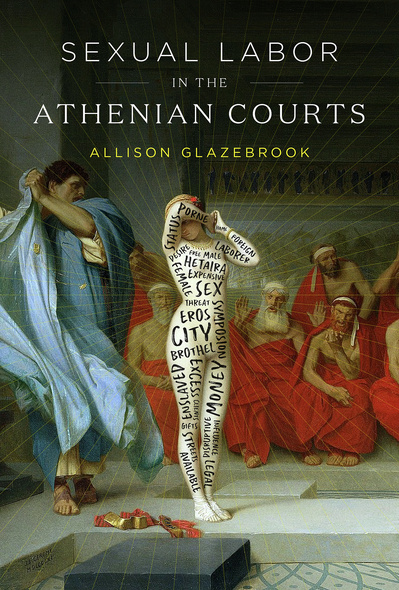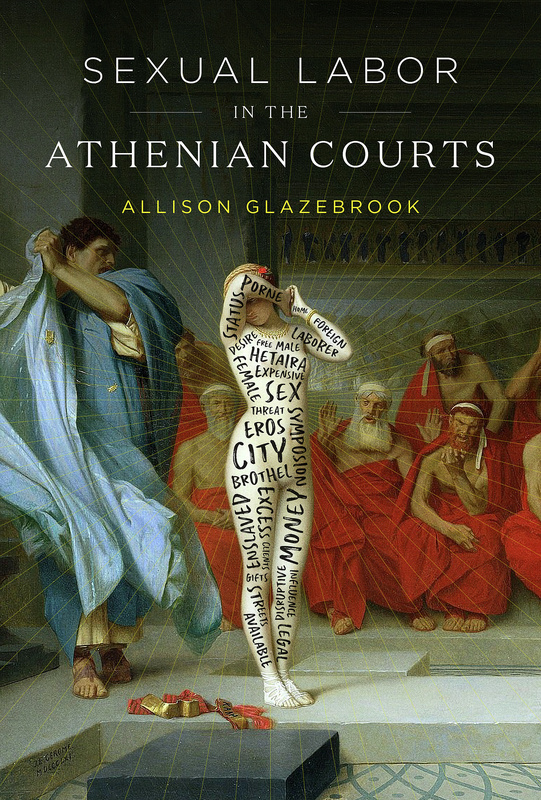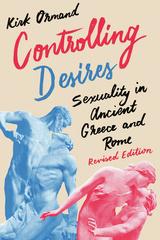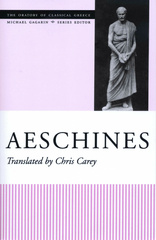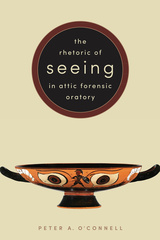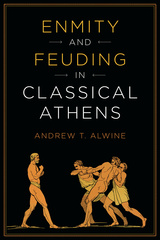Oratory is a valuable source for reconstructing the practices, legalities, and attitudes surrounding sexual labor in classical Athens. It provides evidence of male and female sex laborers, sex slaves, brothels, sex traffickers, the cost of sex, contracts for sexual labor, and manumission practices for sex slaves. Yet the witty, wealthy, and independent hetaira, well-known from other genres, does not feature. Its detailed narratives and character portrayals provide a unique discourse on sexual labor and reveal the complex relationship between such labor and Athenian society.
Through a holistic examination of five key speeches, Sexual Labor in the Athenian Courts considers how portrayals of sex laborers intersected with gender, the body, sexuality, the family, urban spaces, and the polis in the context of the Athenian courts. Drawing on gender theory and exploring questions of space, place, and mobility, Allison Glazebrook shows how sex laborers represented a diverse set of anxieties concerning social legitimacy and how the public discourse about them is in fact a discourse on Athenian society, values, and institutions.
[Sexual Labor in the Athenian Courts] will be a valuable addition to the library of scholars in Athenian forensic oratory and ancient sexuality and gender.
[A] splendid and important book...Glazebrook’s demonstration of the potential power of even enslaved sex laborers in Athens is a signal example of the many insights found in this volume. Scholars of Athens, and academics pursuing gender and liberation studies, are alike now indebted to Allison Glazebrook for an outstanding book, well-organized, well-researched and well-written, offering a pioneering approach to the writing of social history.
A valuable contribution to the field…[Sexual Labor in the Athenian Courts] is a book which will be valuable for new students of sexuality and gender in antiquity and for experienced scholars alike...Glazebrook provides a worthwhile discussion of how the portrayal of sex labourers is used by the orators to expose and test the tensions within Athenian social norms and institutions...the book’s streamlined focus constrains discussions to the Attic orators, resulting in a tight, focused and thorough exploration of sexual labour within the genre.
Glazebrook’s writing is clear and to the point. The introduction’s explanation of the Athenian court system, with a map indicating potential locations of the courts, reveals two strengths of the book that will be found throughout: incorporating material evidence and maintaining accessibility for nonspecialists...The standout features of the book are its consideration of place and movement, its inclusion of material culture, its amplification of female citizenship, and its accessibility...The book achieves its aims of treating the trope of the sex laborer in the orators as a window into Athenian society.
Sexual Labor [in the Athenian Courts] is refreshingly clearly written. Glazebrook briefly but helpfully explains relevant technical points (for example, on legal processes) and key concepts (like the important but fuzzy ideological distinction between pederasty and prostitution), avoiding over-simplification and acknowledging problems and contradictions. She will offer a variety of scholars' opinions and either pick out the one closest to hers or identify the 'bottom line,' . . . the examination is illuminating and useful.
In her excellently organized and presented book, Glazebrook offers an eloquent and thorough analysis of such characters and many insights on the subject, focusing on the presentation of ‘sex laborers’ to elucidate the complex Athenian ideology on the sex trade and those engaged with it. [Sexual Labor in the Athenian Courts] is a valuable contribution to modern literature, especially for scholars working on the Attic orators and researchers working on the sex trade, gender, and sexuality in classical Athens.
Allison Glazebrook does an especially nice job of explicating the complexities of Athenian juridical practices. Since these texts are rarely talked about, the chapters on Alke and Simon are welcome, especially the former because it points to patterns that recur in other rhetorical depictions of prostitution and significantly brings that text into the discussion of female sexuality and prostitution in ancient Greece.
Allison Glazebrook’s main contribution is to direct attention to the rhetorical and cultural constructions of sex laborers, male and female. Although the speeches discussed in the book have been studied extensively elsewhere, she manages to add new insights concerning Athenian anxieties about sex laborers and how they were manipulated by the orators.
A Note to the Reader
Acknowledgments
Introduction
1. Under the Influence
2. In the Oikos
3. Part of the Family
4. Same-Sex Desire
5. Citizen Sex Slaves
Conclusion
Notes
Bibliography
Index

